- Home
- Brian Garfield
Suspended Sentences Page 7
Suspended Sentences Read online
Page 7
Eric had been good at toadying up to anyone who could help him learn the arts of politics and ambition. Eric had always been very actorish: he wasn’t real — everything was a role, a part, a performance: everything Eric did was done with his audience in mind. If you couldn’t be any help to him he could, without a second thought, cut you dead.
He wasn’t really handsome. He had a small round head and ordinary features. But he’d always kept himself trim and he’d always been a natty dresser. And the beard sharpened his face, made it longer, added polish to his appearance. Back on the mainland, she remembered, he’d tended to favor three-piece suits.
Eric’s studio was spartan, dominated by a scrubbed-clean workbench under the dormer window’s north light. An array of carving tools filled a wooden rack, each tool seated in its proper niche, and there were four tidy wooden bins containing pieces of white bone of graduated sizes. Antique inkwells and jars were arranged beside a tray of paintbrushes and other slender implements. In three glass display cases, each overhung by a museum light, lay examples of Eric’s art. One piece, especially striking, was a large ivory cribbage board in the shape of a Polynesian outrigger canoe with intricate black-and-white scenes engraved upon its faceted surfaces.
“That’s a sort of frieze,” Eric explained. “If you follow those little scenes around the board, they illustrate the whole mythology of the Polynesian emigration that led to the original settlement of Hawaii a thousand years ago. I’m negotiating to sell it to the museum over in Honolulu.”
“It must be pretty lucrative, this stuff.”
“It can be. Do you know anything about scrimshaw?”
“No,” she said, and she didn’t particularly care to; but Eric had paid for the bottle and was pouring a drink for her, and she was desperate for company — anyone’s, even Eric’s — and so she stayed and pretended interest.
“It’s a genuine American folk art. It was originated in the early 1800s by the Yankee whalers who came out of the Pacific with endless time on their hands on shipboard. They got into the habit of scrimshanding to pass the time. The early stuff was crude, of course, but pretty quickly some of them started doing quite sophisticated workmanship. They used sail needles to carve the fine lines of the engraving and then they’d trace India ink or lampblack into the carvings for contrast. About the only materials they had were whalebone and whales’ teeth, so that’s what they carved at first.
“The art became very popular for a while, about a century ago, and there was a period when scrimshanding became a profession in its own right. That was when they ran short of whalebone and teeth and started illustrating elephant ivory and other white bone materials. Then it all went out of fashion. But it’s been coming back into favor the past few years. We’ve got several scrimshanders here now. The main problem today, of course, is the scarcity of ivory.”
At intervals Brenda sipped his whiskey and vocalized sounds indicative of her attentiveness to his monologue. Mainly she was thinking morosely of the pointlessness of it all. Was Eric going to ask her to stay the night? If he did, would she accept? In either case, did it matter?
Watching her with bemused eyes, Eric went on. “The Endangered Species laws have made it impossible for us to obtain whalebone or elephant ivory in any quantities anymore. It’s a real problem.”
“You seem to have a fair supply in those bins there.”
“Well, some of us have been buying mastodon ivory and other fossilized bones from the Eskimos — they dig for it in the tundra up in Alaska. But that stuff’s in short supply too, and the price has gone through the ceiling.”
Eric took the glass and filled it from the bottle, extracting ice cubes from the half-size fridge under the workbench. She rolled the cold glass against her forehead and returned to the wicker chair, balancing herself with care. Eric smiled with the appearance of sympathy and pushed a little box across the bench. It was the size of a matchbox. The lid fit snugly. Etched into its ivory surface was a drawing of a humpback whale.
“Like it?”
“It’s lovely.” She tried to summon enthusiasm in her voice.
“It’s nearly the real thing,” he said. “Not real ivory, of course, but real bone at least. We’ve been experimenting with chemical processes to bleach and harden it.”
She studied the tiny box and suddenly looked away. Something about it had put her in mind of little Geoff’s casket.
“The bones of most animals are too rough and porous,” Eric was saying. “They tend to decompose, of course, being organic. But we’ve had some success with chemical hardening agents. Still, there aren’t many types of bone that are suitable. Of course, there are some people who’re willing to make do with vegetable ivory or hard plastics, but those really aren’t acceptable if you care about the artistry of the thing. The phony stuff has no grain, and anybody with a good eye can always tell.”
She was thinking she really had to pull herself together. You couldn’t get by indefinitely on self-pity and the liquid largess of old acquaintances, met by chance, whom you didn’t even like. She’d reached a point-of-no-return: the end of this week her room rent would be due again and she had no money to cover it; the time to make up her mind was now, right now, because either she got a job or she’d end up like that whiskered wino begging for pennies and eating out of refuse bins.
Eric went on prattling about his silly hobby or whatever it was: something about the larger bones of primates — thigh bone, collarbone. “Young enough to be in good health of course — bone grows uselessly brittle as we get older…” But she wasn’t really listening; she stood beside the workbench looking out through the dormer window at the dozens of boats in the anchorage, wondering if she could face walking into one of the tourist dives and begging for a job waiting on tables.
The drink had made her unsteady. She returned to the chair, resolving to explore the town first thing in the morning in search of employment. She had to snap out of it. It was time to come back to life and perhaps these beautiful islands were the place to do it: the proper setting for the resurrection of a jaded soul.
Eric’s voice paused interrogatively and it made her look up. “What? Sorry.”
“These two here,” Eric said. She looked down at the two etched pendants. He said, “Can you tell the difference?”
“They look pretty much the same to me.”
“There, see that? That one, on the left, that’s a piece of whale’s tooth. This other one’s ordinary bone, chemically hardened and bleached to the consistency and color of true ivory. It’s got the proper grain, everything.”
“Fine.” She set the glass down and endeavored to smile pleasantly. “That’s fine, Eric. Thank you so much for the drinks. I’d better go now —” She aimed herself woozily toward the door.
“No need to rush off, is there? Here, have one more and then we’ll get a bite to eat. There’s a terrific little place back on the inland side of town.”
“Thanks, really, but —”
“I won’t take no for an answer, duckie. How often do we see each other, after all? Come on — look, I’m sorry. I’ve been boring you to tears with all this talk about scrimshaw and dead bones, and we haven’t said a word yet about the really important things.”
“What important things?”
“Well, what are we going to do about you, duckie? You seem to have a crucial problem with your life right now and I think, if you let me, maybe I can help sort it out. Sometimes all it takes is the counsel of a sympathetic old friend, you know.”
By then the drink had been poured and she saw no plausible reason to refuse it. She settled back in the cane chair. Eric’s smile was avuncular. “What are friends for, after all? Relax a while, duckie. You know, when I first came out here I felt a lot the way you’re feeling. I guess in a way I was lucky not to’ve been as good a scholar as you and Briggs were. I got through the Ph.D. program by the skin of my teeth but it wasn’t enough. I applied for teaching jobs all over the country, you know. Not one nibble.
”
Then the quick smile flashed behind the neat beard. “I ran away, you see — as far as I could get without a passport. These islands are full of losers like you and me, you know. Scratch any charter-boat skipper in that marina and you’ll find a bankrupt or a failed writer who couldn’t get his epic novel published.”
Then he lifted his glass in a gesture of toast. “But it’s possible to find an antidote for our failure, you see. Sometimes it may take a certain ruthlessness, of course — a willingness to suspend the stupid values we were brought up on. So-called civilized principles are the enemies of any true individualist — you have to learn that or you’re doomed to be a loser for all time. The kings and robber barons we’ve honored throughout history — none of them was the kind to let himself be pushed around by the imbecilic bureaucratic whims of college deans or tenure systems.”
“Establishments and institutions and laws are designed by winners to keep losers in their place, that’s all. You’re only free when you learn there’s no reason to play the game by their rules. Hell, duckie, the fun of life only comes when you discover how to make your own rules and laugh at the fools around you. Look — consider your own situation. Is there any single living soul right now who truly gives a damn whether you, Brenda Briggs, are alive or dead?”
Put that starkly it made her gape. Eric leaned forward, brandishing his glass as if it were a searchlight aimed at her face. “Well?”
“No. Nobody,” she murmured reluctantly.
“There you are, then.” He seemed to relax; he leaned back. “There’s not a soul you need to please or impress or support, right? If you went right up Front Street here and walked into the Bank of Hawaii and robbed the place of a fortune and got killed making your escape, you’d be hurting no one but yourself. Am I right, duckie?”
“I suppose so.”
“Then why not give it a try?”
“Give what a try?”
“Robbing a bank. Kidnaping a rich infant. Hijacking a yacht. Stealing a million in diamonds. Whatever you feel like, duckie — whatever appeals to you. Why not? What have you got to lose?”
She twisted her mouth into an uneven smile. “You remind me of the sophomoric sophistry we used to spout when we were undergraduates. Existentialism and nihilism galore.” She put her glass down. “Well, I guess not, Eric. I don’t think I’ll start robbing banks just yet.”
“And why not?”
“Maybe I’m just not gaited that way.”
“Morality? Is that it? What’s morality ever done for you?”
She steadied herself with a hand against the workbench, set her feet with care, and turned toward the door. “It’s a drink too late for morbid philosophical dialectics. Thanks for the booze, though. I’ll see you…”
“You’d better sit down, duckie. You’re a little unsteady there.”
“No, I —”
“Sit down.” The words came out in a harsher voice. “The door’s locked anyway, duckie — you’re not going anywhere.”
She scowled, befuddled. “What?”
He showed her the key; then he put it away in his pocket. She looked blankly at the door, the keyhole, and — again — his face. It had gone hard; the polite mask was gone.
“I wish you’d taken the bait,” he said. “Around here all they ever talk about is sunsets and surfing and the size of the marlin some fool caught. At least you’ve got a bigger vocabulary than that. I really wish you’d jumped at it, duckie. It would have made things easier. But you didn’t, so that’s that.”
“What on earth are you talking about?”
She stumbled to the door then — and heard Eric’s quiet laughter when she tried the knob.
She put her back to the door. Her head swam. “I don’t understand…”
“It’s the ivory, duckie. The best material is fresh human bone. The consistency, the hardness — it takes a fine polish if it’s young and healthy enough…”
She stared at him and the understanding seeped into her slowly and she said, “That’s where the wino went.”
“Well, I have to pick and choose, don’t I? I mean, I can’t very well use people whose absence would be noticed.”
She flattened herself against the door. She was beginning to pass out; she tried to fight it but she couldn’t; in the distance, fading, she heard Eric say, “You’ll make fine bones, duckie. Absolutely first-rate scrimshaw.”
THE CHALK OUTLINE
“The Chalk Outline” was a visceral response to an accident that involved a friend. The story is an attempt to restate and clarify a point I tried to make in DEATH WISH. I probably would not write the same story today because it seems too much of an endorsement of the character’s behavior; it does not show the distinction between attractive fantasy and destructive reality.
She wasn’t even hurrying.
She turned the corner, driving sedately, and without warning the Murdochs’ new puppy squirted into the lane like a seed popping from a squeezed lemon. Carolyn braked and turned, avoiding it, and that was when the little Murdoch girl, chasing the puppy, grenaded out from behind the hedge and it just wasn’t possible to stop in time.
The lawyer’s name was Charles Berlin. He had represented her in the divorce. He was the only attorney she’d ever dealt with. “This isn’t my usual kind of case,” he told her. “If you’d feel more comfortable with a criminal lawyer…?”
“Criminal?” She hadn’t thought of it like that.
“Manslaughter’s a crime,” he said gently.
It took her a moment to absorb what he was saying. Her mind hadn’t been tracking very well since it happened. “I’m sorry,” she said, and shook her head as if to clear it.
“Don’t get into the habit of saying that all the time,” he said.
“What?”
“That’s about the tenth time you’ve said ‘I’m sorry’ since you walked in here.”
“I’m sor —” Then she nearly laughed.
He smiled at her. “That’s better.”
He was a kind man; she’d appreciated that in him two years ago — he’d handled the divorce with grace and without abrasiveness. She tried to compose herself by sitting up straighter and tossing her hair back and glancing around the office as if to get her bearings. The room was like Charles’s person — ordinary, matter-of-fact, quietly attractive. He was, she supposed, about five years older than she was — forty or so.
Carolyn said, “I just don’t know what to do. What do you suggest?”
“I’ll handle it if you like. I don’t think it’ll be difficult. Technically you’ve committed a crime but it obviously wasn’t intentional. I hardly think they’ll throw the book at you.” And again the reassuring smile. It was the first time she’d ever noticed the dimple in his left cheek.
He was a comfortable and comforting sort of man: very low-key but she supposed he’d cultivated that because a good many of his clients must be people who needed soothing.
He leaned back in his swivel chair with one leg crossed over the other knee, pivoting on the ankle, a yellow pad against the upraised knee and a pencil against his teeth. “Okay. Take it easy. I’m going to have to ask some direct questions. Ready?”
She dipped her head, assenting.
“Formally, then — you acknowledge that you ran down the child?”
She closed her eyes. She knew she’d have to force the words out sooner or later. It might as well be now.
“Yes. I killed the little girl.”
It was all prearranged — an agreement between Charles and the State’s Attorney. She was amazed how quickly it went, in the court-room. She pleaded guilty to involuntary manslaughter. There were a few affidavits, and the judge — a surprisingly young but quite overweight woman — seemed less interested in the various depositions than in Charles’s photographs of the scene of what Carolyn had finally been able to start calling The Accident (as opposed to The Day I Killed Amy Murdoch).
Charles pointed out the overgrown hedge in the photos and s
howed how it would have been impossible for anyone to have seen the little girl in time. He also pointed to the brief black skid marks that showed up clearly against the pale gray pavement; according to the police analysis they showed she couldn’t have been doing more than twenty-five miles an hour at the time she saw Amy emerge into the street.
(She’d been going faster than that but she’d already braked to avoid the dog.)
“In short,” Charles summed up, “I think this incident represents a textbook example of an unavoidable accident. I would point out to your honor that there wasn’t any hit-and-run. Mrs. Benson stopped immediately and had the presence of mind to try and save the little girls’ life. She called the police and the ambulance. She even went up to the Murdoch house and told Mr. Murdoch what had happened. I think this tragic incident must be chalked up as an act of God, your honor, and I think justice would be best served if Mrs. Benson were acquitted; but we recognize that a homicide has been committed and that may not be possible.
“My client is ready to accept whatever punishment this court decides to hand down, but I’d like to point out that in her own conscience she has already suffered far more than justice might demand of her. I suggest there were several victims of this horrible accident, your honor, and Mrs. Benson was one of them.”
The judge lectured her a bit, had another brief look at the photos, agreed the accident had been clearly unavoidable, pointed out that under the laws of the state she had no choice but to find Carolyn guilty of involuntary manslaughter, and pronounced sentence: “Three hundred and sixty-four days. Sentence is suspended.”
Charles had told her to expect just that. He’d explained what it meant, in practical terms: she’d have to report to a parole officer once a month — a formality — and she’d have to apply for the court’s permission if she wanted to leave the state before the end of the year’s period. She couldn’t believe it was that simple. “You mean it’s over? I can go?”

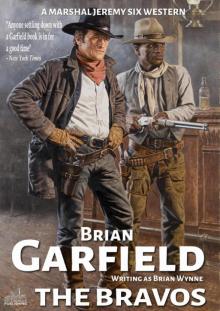 Marshal Jeremy Six #3
Marshal Jeremy Six #3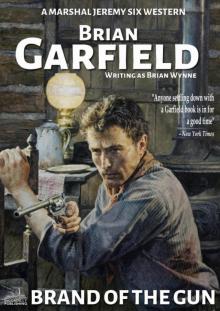 Marshal Jeremy Six #6
Marshal Jeremy Six #6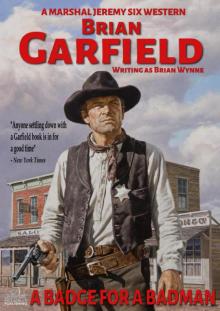 Marshal Jeremy Six #5
Marshal Jeremy Six #5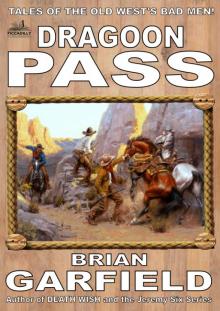 The Outlaws 2
The Outlaws 2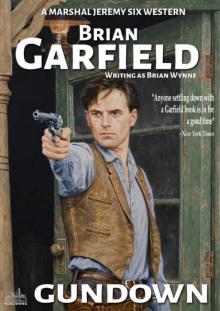 Marshal Jeremy Six #7
Marshal Jeremy Six #7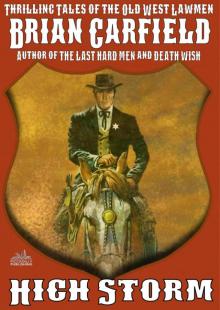 The Lawbringers 4
The Lawbringers 4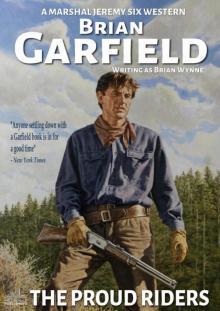 Marshal Jeremy Six #4 the Proud Riders
Marshal Jeremy Six #4 the Proud Riders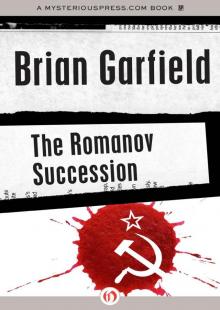 The Romanov succession
The Romanov succession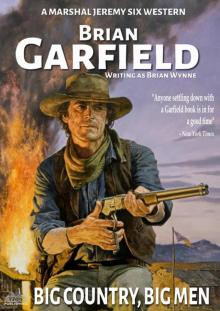 Marshal Jeremy Six #8
Marshal Jeremy Six #8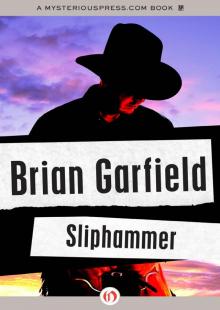 Sliphammer
Sliphammer Line of Succession
Line of Succession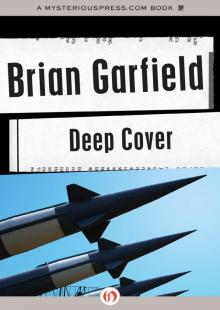 Deep Cover
Deep Cover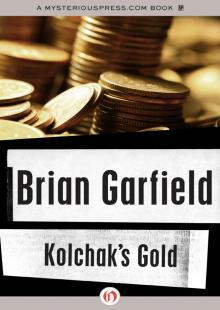 Kolchak's Gold
Kolchak's Gold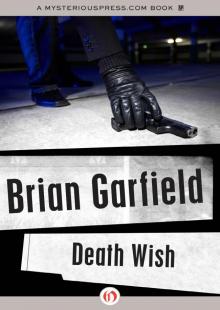 Death Wish
Death Wish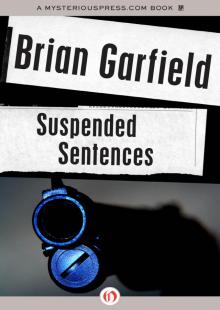 Suspended Sentences
Suspended Sentences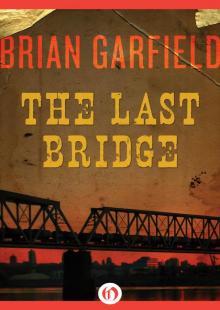 The Last Bridge
The Last Bridge Relentless
Relentless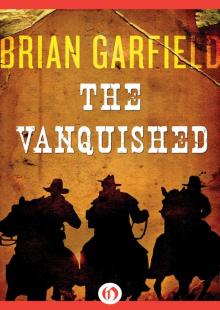 The Vanquished
The Vanquished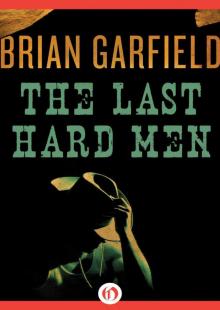 The Last Hard Men
The Last Hard Men Hit and The Marksman
Hit and The Marksman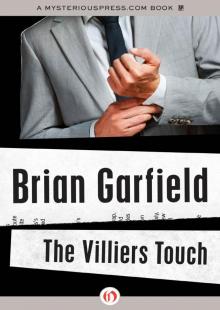 Villiers Touch
Villiers Touch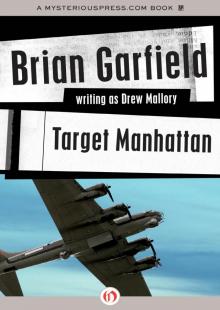 Target Manhattan
Target Manhattan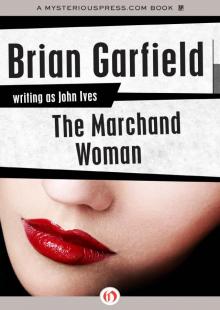 Marchand Woman
Marchand Woman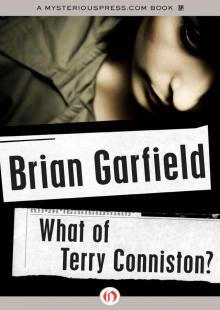 What of Terry Conniston?
What of Terry Conniston?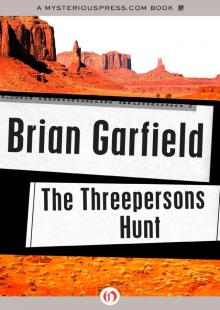 Threepersons Hunt
Threepersons Hunt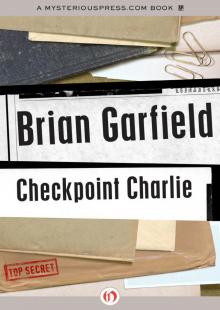 Checkpoint Charlie
Checkpoint Charlie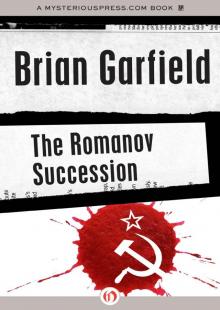 Romanov Succession
Romanov Succession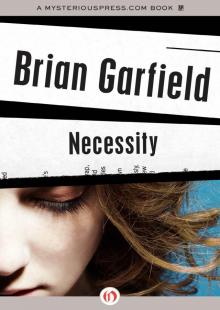 Necessity
Necessity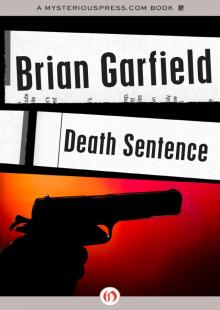 Death Sentence
Death Sentence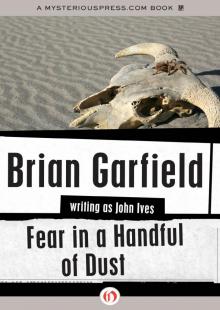 Fear in a Handful of Dust
Fear in a Handful of Dust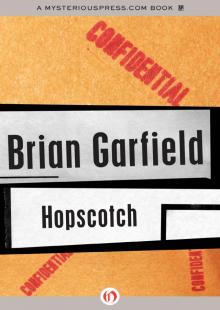 Hopscotch
Hopscotch